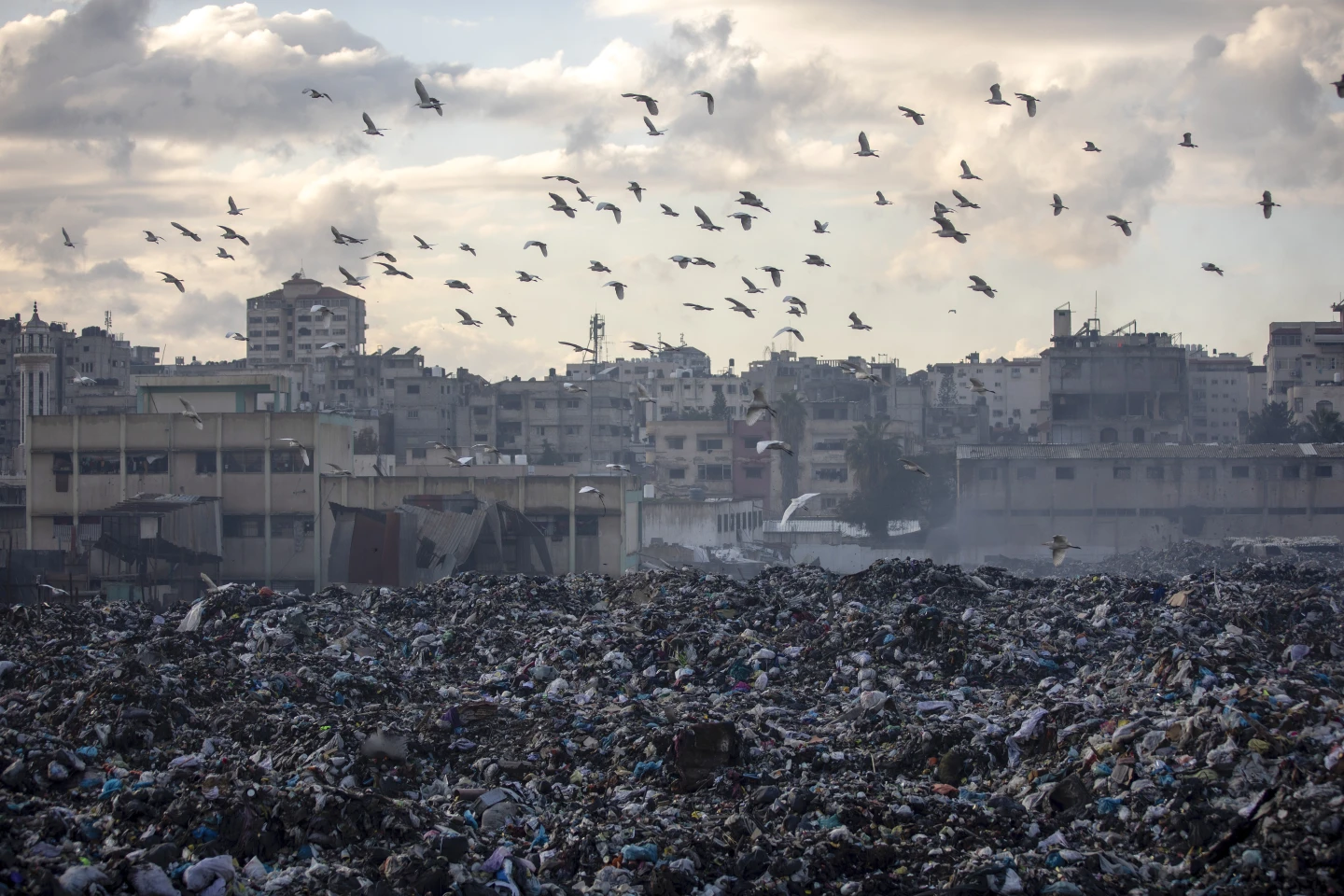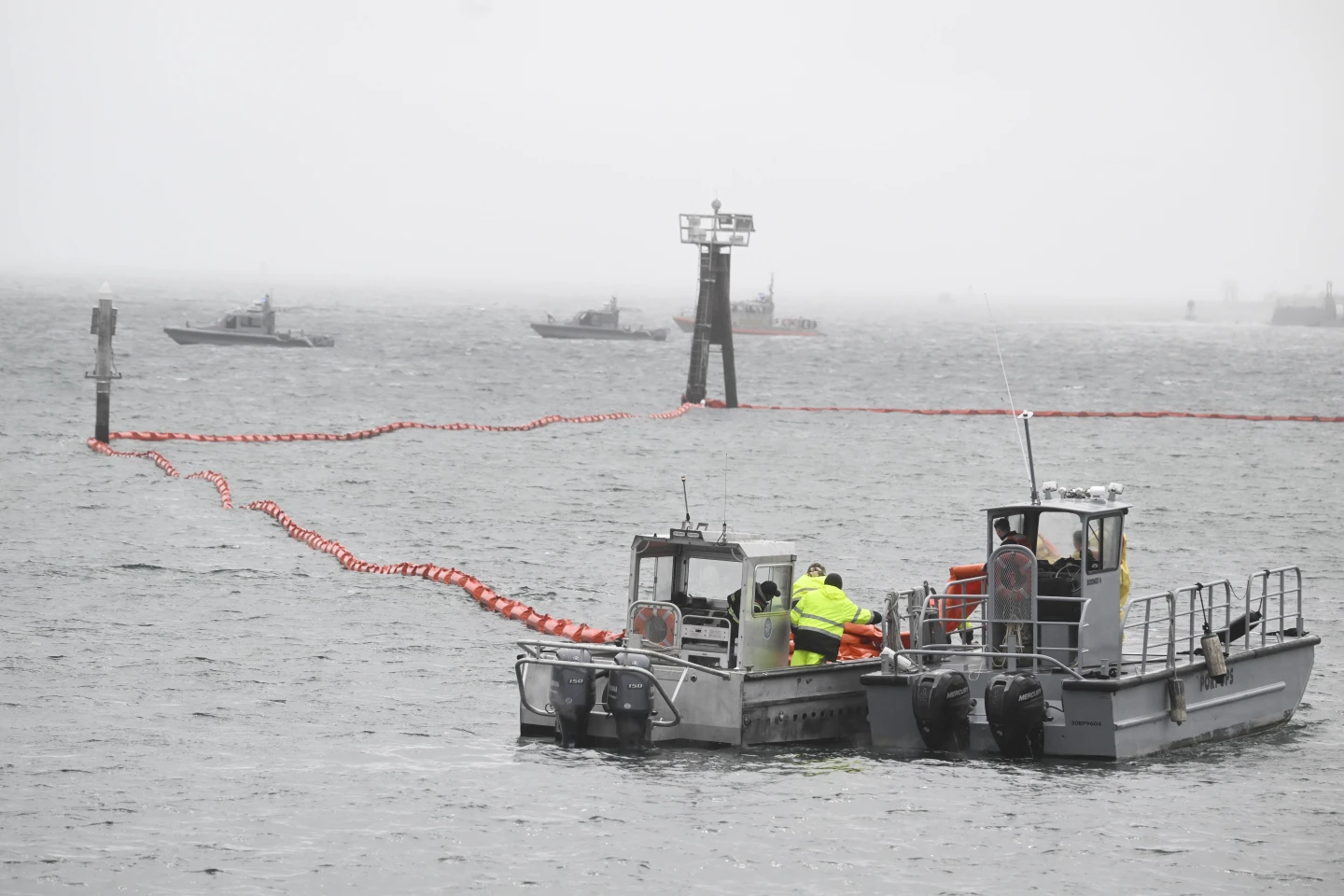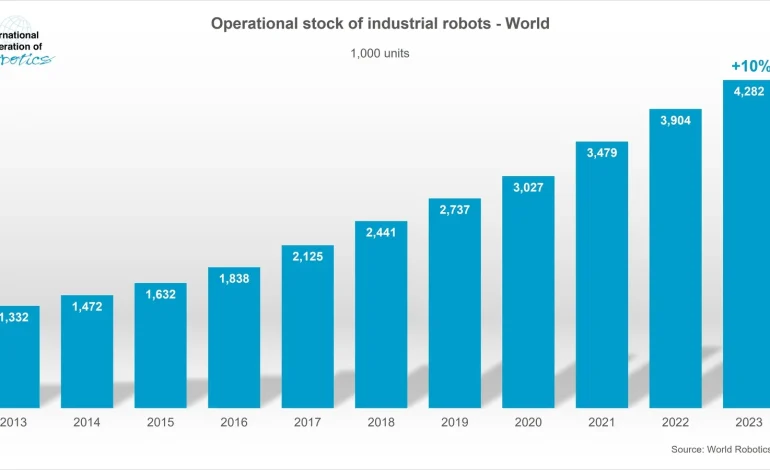The global factory floor continues to be populated by robots, with over half a million new installations in late 2023, bringing the total to a record 4.3 million, Bloomberg reports, citing the International Federation of Robotics (IFR).
While this marks the third consecutive year of surpassing the half-million mark, the report reveals a slowdown in growth for some leading automation markets.
Asia remains the dominant region for robot adoption, accounting for 70% of new deployments, with Europe claiming 17% and the Americas (primarily the US) taking 10%.
China, the world’s largest industrial robot market, experienced a 5% decline in installations compared to 2022, despite still accounting for over half of global robot deployments. The report attributes this slowdown to factors such as a post-pandemic economic adjustment.
While reshoring efforts in the US have fueled an uptick in robot installations in recent years, the number for 2023 saw a slight dip compared to the previous year. Japan and Korea also experienced similar declines.
Germany stands out as the only top-five automation country to see an acceleration in robot installations in 2023, surpassing 2022 figures. However, the second and third largest European markets, Italy and France, saw declines, potentially due to factors like the Ukrainian conflict, tight monetary policies, and the relative weakness of the European automotive industry compared to China.
Despite abundant labor pools, even emerging economies are embracing robotic automation. India recorded a 59% surge in robot installations, reaching a record 8,510 units, driven primarily by demand from the automotive sector.
“India is one of the strongest growing economies among the Asian emerging markets,” notes Marina Bill, president of the IFR, highlighting that the country’s robot stock has nearly doubled since 2018.








